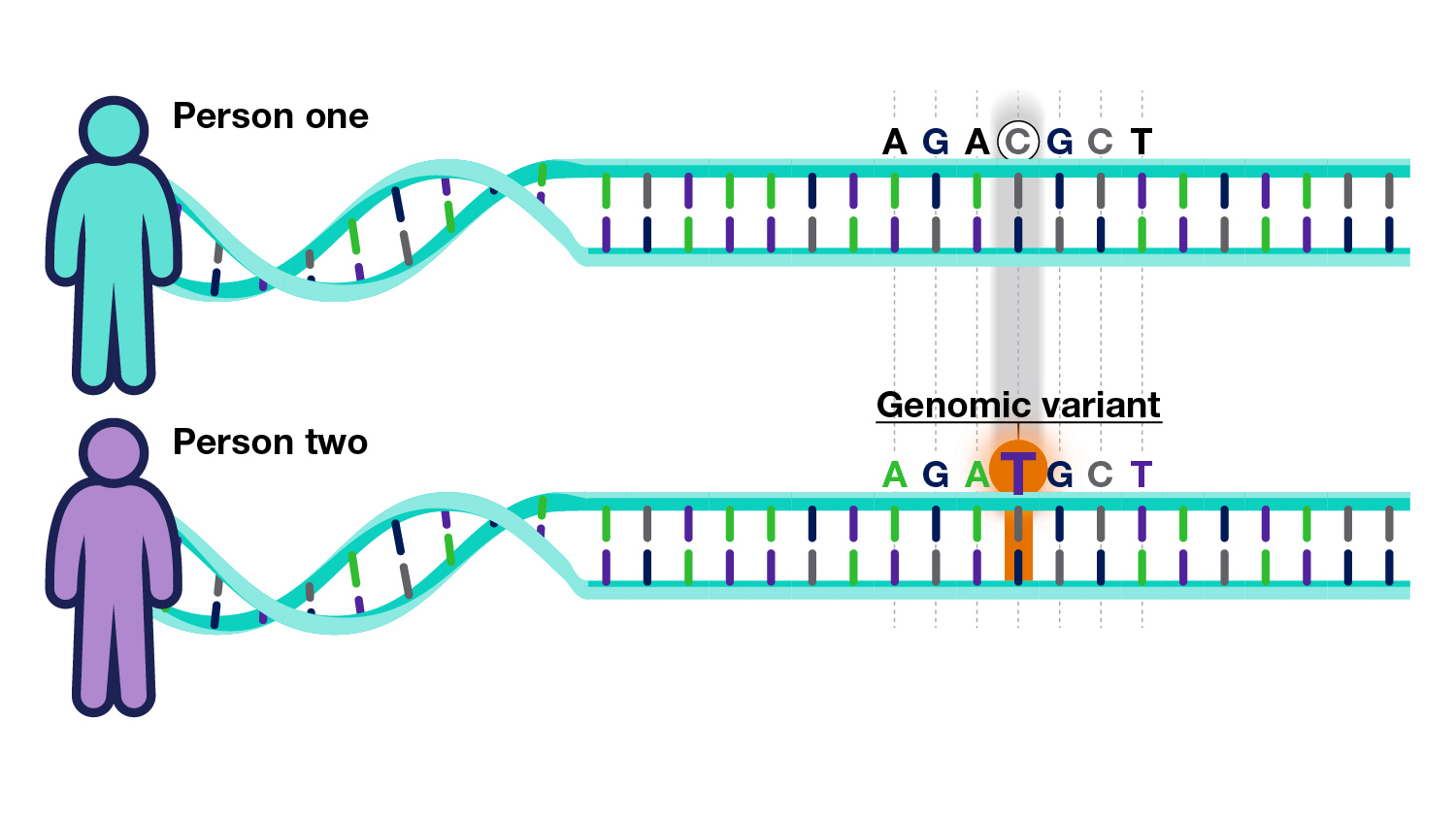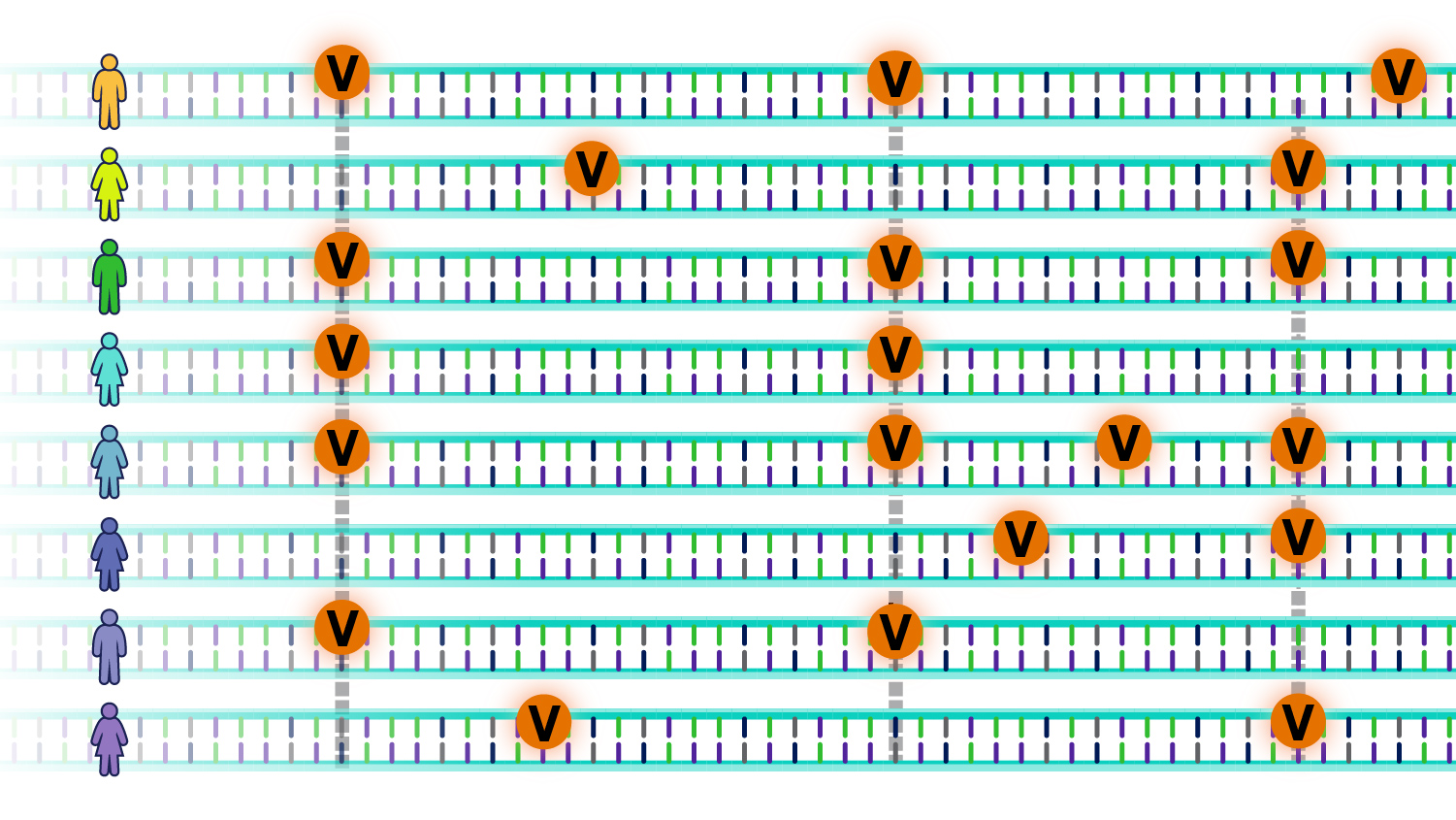Polygenic Risk Scores (original) (raw)
All humans have near-identical DNA sequences across the estimated 6 billion-letter code for their genome.
Slight differences exist between individuals, making each of us unique. These differences, called genomic variants, occur at specific locations within the DNA.
DNA is read like a code. This code is made up of four types of chemical building blocks - adenine, thymine, cytosine and guanine, abbreviated with the letters A, T, C and G. A genomic variant occurs in a location within the DNA where that code differs among people.
For example, in Person One below, the location shows a "C" base. But in the same location in Person Two, it is a "T."

There are roughly 4 to 5 million such genomic variants in an individual’s genome. These variants may be unique to that individual or occur in others as well.
Some variants increase the risk of developing diseases, while others may reduce such risk; others have no effect on disease risk.
The question is: How do these genomic variants influence the risk for specific diseases?
